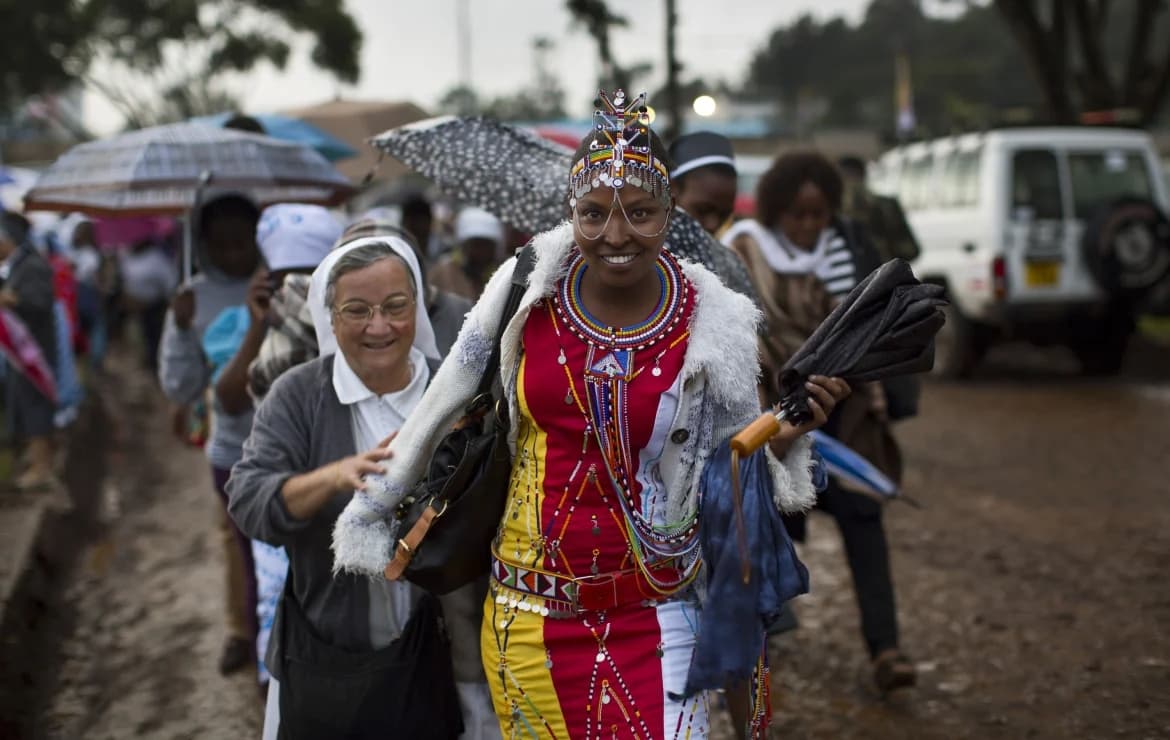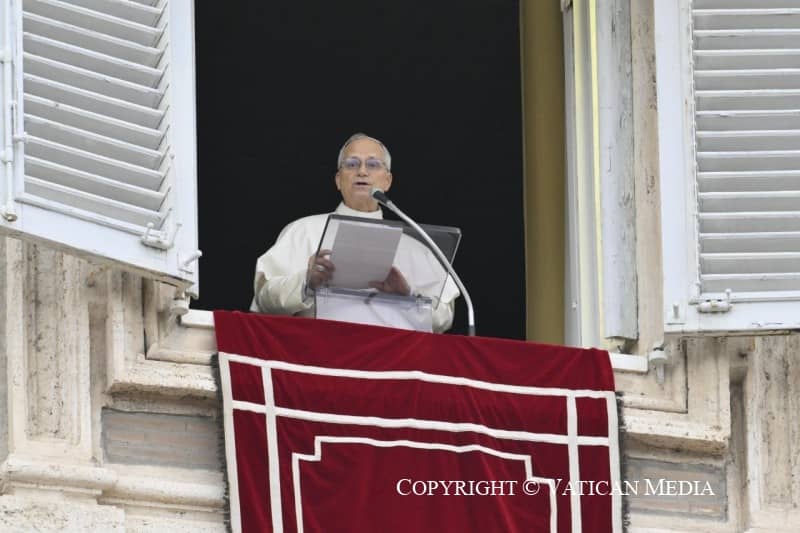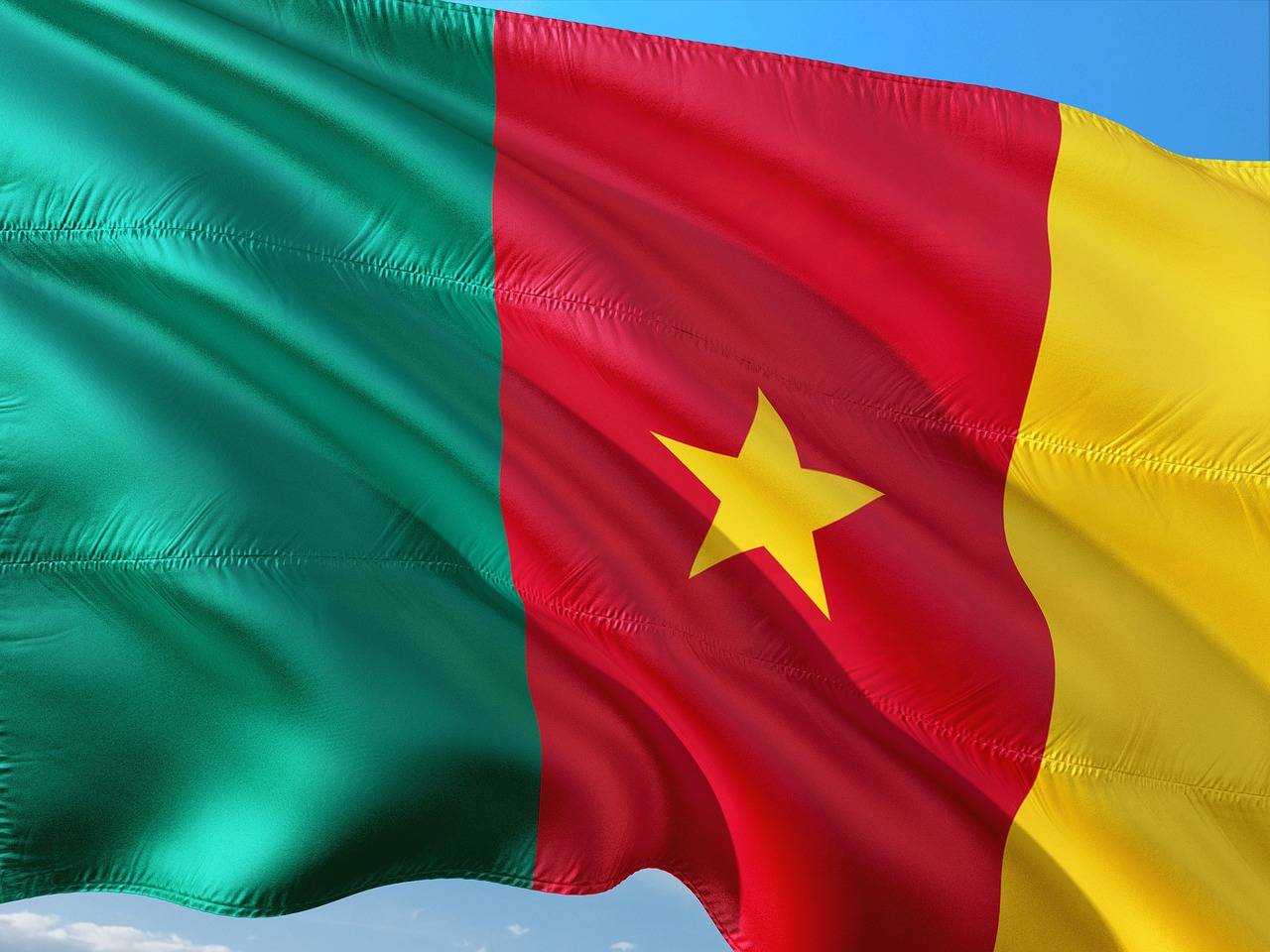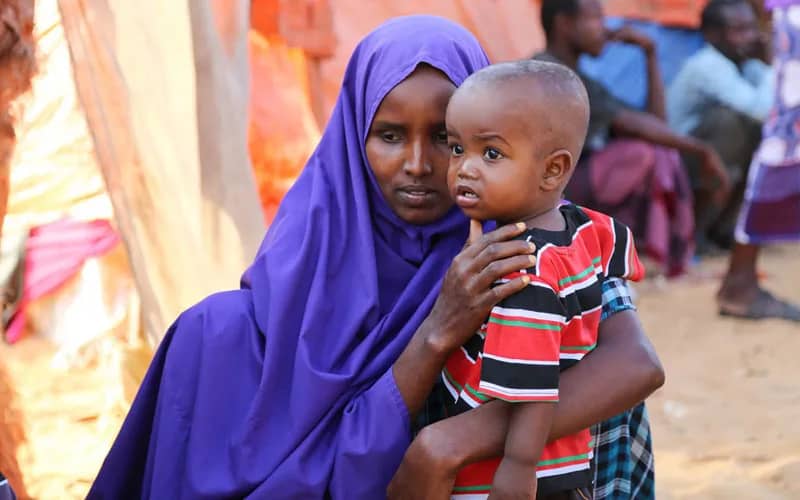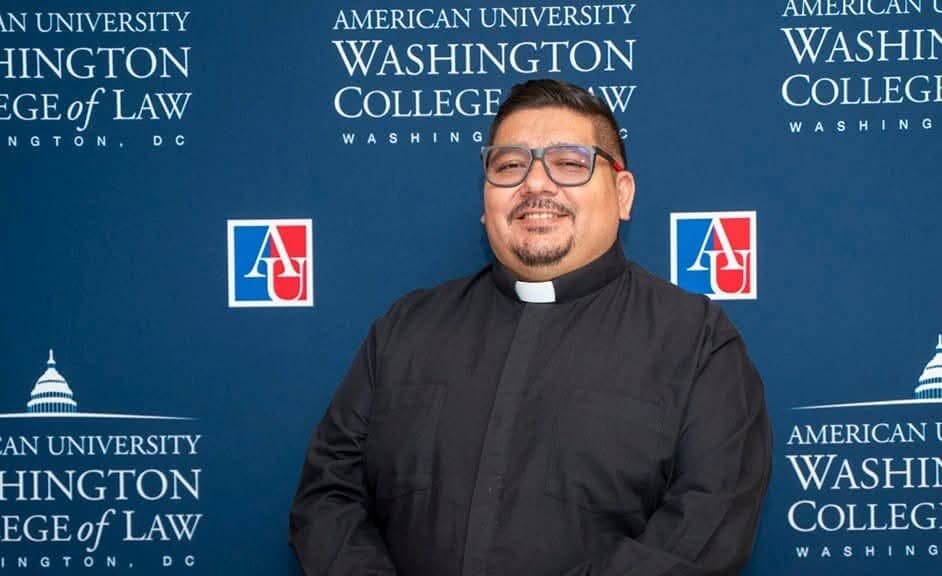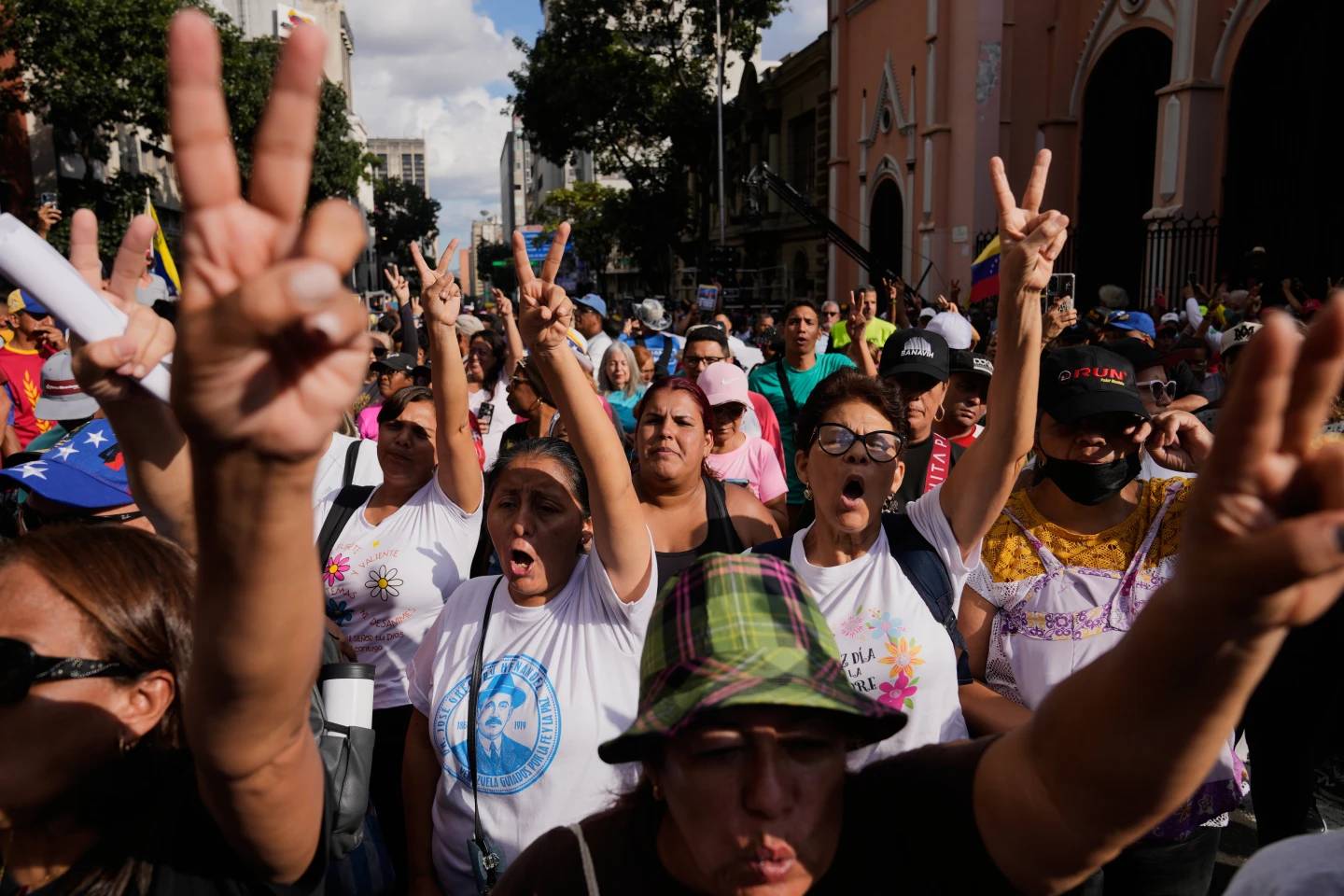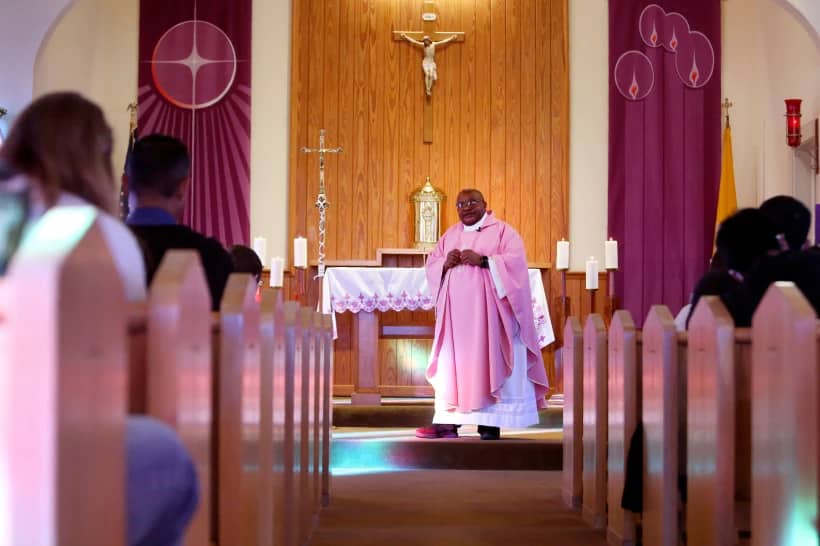YAOUNDÈ, Cameroon – African prelates wrapped up their end of Pope Francis’s ongoing Synod on Synodality in early March, vowing that Africa will listen to the rest of the church but also insisting that it has much to teach.
“African society is a vibrant society with rich cultural values that need to be carefully preserved,” said Bishop Musie Ghebreghiorghis of Ethiopia.
“African values should not be diluted by the dictatorship of democracy or globalization because these values have much to teach to the whole world,” Ghebreghiorghis said. “Our synodal journey should help us to deepen further on these African values, which may have a great impact on the world.”
The Continental Assembly of the Synod on Synodality took place in Addis Ababa, Ethiopia, March 1-6.
“We speak different languages; we have different cultural backgrounds; we have different liturgies and yet we feel we are all members of the one family of God here in Africa,” Ghebreghiorghis said during a March 4 Eucharistic celebration at the Nativity of the Blessed Virgin Mary Cathedral of the Addis Ababa Archdiocese.
Some 200 delegates from across the continent pledged to “form the Synodal Family of God in the practice of integral and life-giving leadership that is relational and collaborative, and capable of generating solidarity and co-responsibility.”
That Synodal Family of God, the clerics said, will “create spaces and enlarge our tent for the possible exercise of various forms of lay ministry.”
Cardinal Fridolin Ambongo of the Democratic Republic of Congo, president of the Symposium of Episcopal Conferences of Africa and Madagascar (SECAM) and also a newly appointed member of Pope Francis’s council of cardinal advisors, called the gathering “a Kairos for renewal of the Church in Africa.”
“It has been a moment to study but also to live synodality. It has been a moment to experience the sense of family of God in Africa,” Ambongo said.
“It has been a moment to listen to one another, to listen to the Holy Spirit on the delicate issues affecting the Continent of Africa,” he said. “It is a synodal assembly to mutually renew our mission here in Africa.”
Participants identified a number of key priority areas for the Church in Africa.
- Family pastoral care that focuses on present-day challenges such as divorce, broken marriages and re-married people, elective and circumstantial single parents.
- Deepening African cultural values as already enshrined in the concept of the Church as family of God since the first African synod in 1995, with no disregard to the doctrine of the Church.
- Consideration of the African communitarian culture as expressed in philosophies such as Ubuntu, Ujamaa, Indaba and Palaver where co-responsibility and subsidiarity are key principles.
- Commitment to fighting against the exploitation of natural resources which often leads to wars and social conflicts on the continent.
- Promoting liturgical renewal for active participation of the faithful with respect to the guidelines of divine worship.
- Formation of the people of God where the notion of inclusivity is emphasized as a way of promoting synodality in Church governance.
- Promoting the inclusion of women, the youth and all groups of the people of God that feel marginalized.
- Ecological justice and stewardship as a way of living a synodal change in order to address the ecological crisis.
These priorities, according to the bishops, mean that “the Synodal Continental Assembly has confirmed the Church’s way of doing things in Africa. The Family of God in Africa is firmly rooted in the synodal dynamic.”
“Synodality is no longer a remote desire, a faint hope or a distant future objective. We have tasted the nourishing fruits of synodality by encountering, dialoguing with and listening to one another, and all together listening to the Holy Spirit,” they said.
The pope’s envoy in Ethiopia, Archbishop Antoine Camilleri, cautioned against misrepresentations of the synodal process, noting that it was neither “a study group or a parliamentary assembly” but an “ecclesial moment.”
“We are all aware that this synodal encounter is not an event to theorize about issues and problems; neither is it a Church convention, a study group or a parliamentary assembly,” he said.
“The synodal process that brings us together today and which has been our special focus as a universal Church over the past two years is a quintessentially ecclesial moment, in the etymological sense of the term,” Camilleri explained.
“We are the Church in synod: the Family of God is our Tent in Africa,” the SECAM bishops stated simply.
